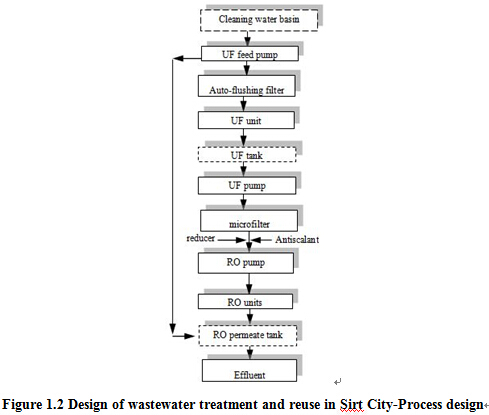Status quo of wastewater treatment in North Africa (Libya)
chinagate.cn, March 24, 2015 Adjust font size:
According to the above table, problems of excessive TDS, overload of water quantity, etc. exist in the Sirte sewage treatment plant. It has been planned to make appropriate adjustments about treatment process for irrigation, for example, stopping mixed liquid recycle and subsequent coagulation feeding, and retaining nutrients in sewage such as nitrogen and phosphorus. However, average value of TDS in effluent from several analyses is about 2,500 mg/L, which indicates the necessity for further desalination. The TDS of tap water in Sirte is normal between 400~ 500 mg/L , intrusion of sea water is mainly responsible for the excess TDS in sewage. Generally TDS of irrigation water should be less than 1,000 mg/L, and in Libya, TDS of effluent is estimated to be lower than 600 mg/L due to excessive evaporation. The total amount of effluent to be treated is 400 m3 per day, and membrane treatment process consisting of ultrafiltration and reverse osmosis is adopted as the main technology. The process flow diagram is as shown in Figure 1.2. This treatment process has proven to be reasonable and feasible, but has not been practiced officially due to political unrest in Libya.


